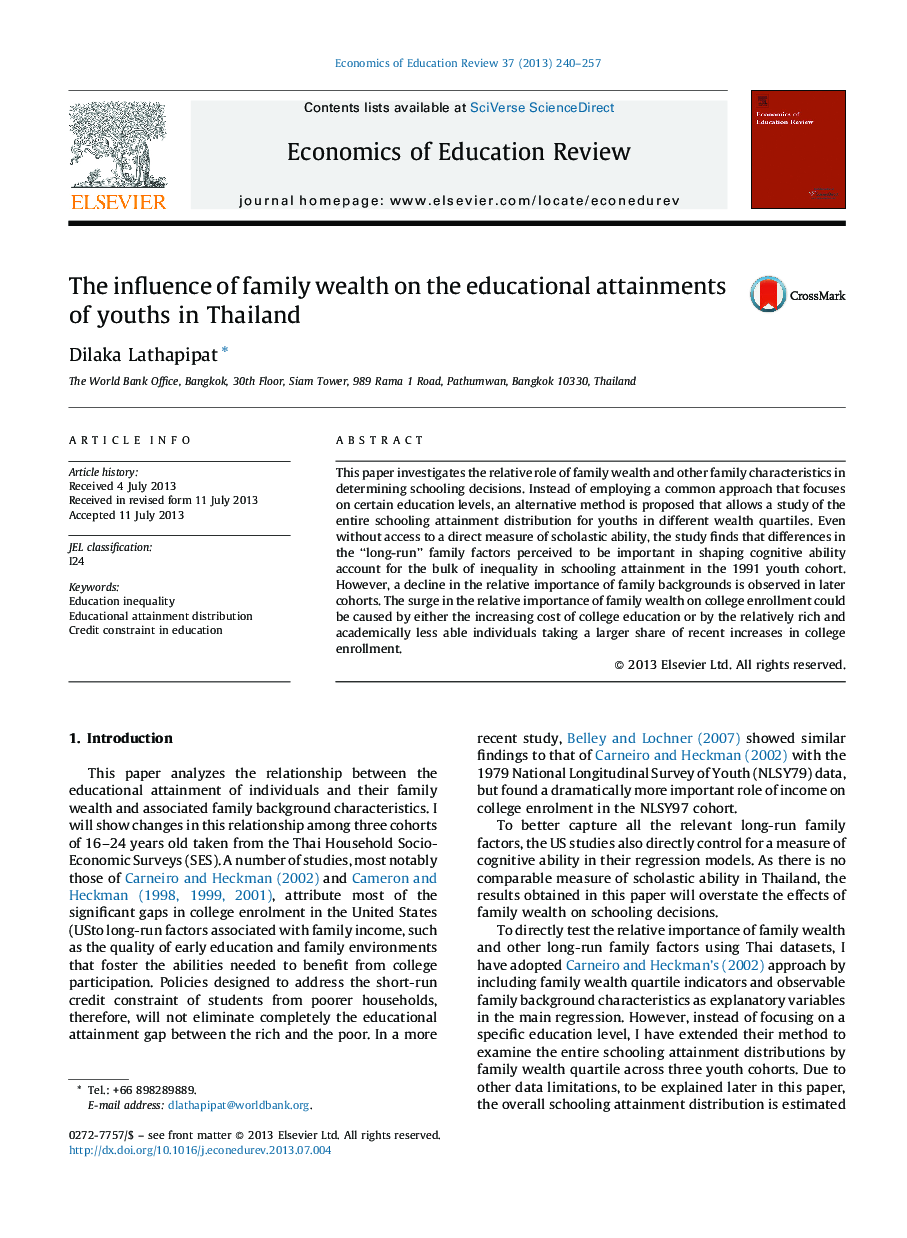| Article ID | Journal | Published Year | Pages | File Type |
|---|---|---|---|---|
| 354608 | Economics of Education Review | 2013 | 18 Pages |
This paper investigates the relative role of family wealth and other family characteristics in determining schooling decisions. Instead of employing a common approach that focuses on certain education levels, an alternative method is proposed that allows a study of the entire schooling attainment distribution for youths in different wealth quartiles. Even without access to a direct measure of scholastic ability, the study finds that differences in the “long-run” family factors perceived to be important in shaping cognitive ability account for the bulk of inequality in schooling attainment in the 1991 youth cohort. However, a decline in the relative importance of family backgrounds is observed in later cohorts. The surge in the relative importance of family wealth on college enrollment could be caused by either the increasing cost of college education or by the relatively rich and academically less able individuals taking a larger share of recent increases in college enrollment.
